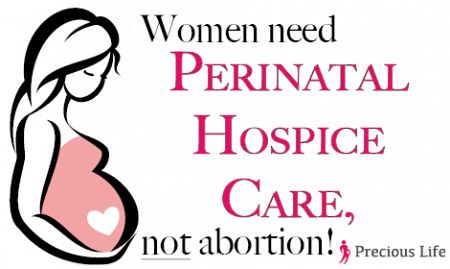“Abortion is never the answer to poor or difficult prenatal diagnosis”
Precious Life is once again calling on the Department of Health in Northern Ireland to immediately establish perinatal hospice services for parents who have received a poor or difficult prenatal diagnosis.
This follows the sad story on today’s BBC Newsbeat of Ashleigh Topley, who was four and a half months pregnant when she found out her baby wouldn't survive outside the womb.
We all feel enormous sympathy for Ashleigh and other parents in these traumatic and distressing situations. But parents in these difficult situations deserve much more than our sympathy – they need a professional support system in place, which will provide them with help, support and resources.
We believe that if proper perinatal hospice services had been in place, Ashleigh would have coped better with the sad news that her baby would not live after birth.
Perinatal hospice care supports parents of children expected to die soon after birth. It offers nurses, chaplains, neonatologists, social workers, bereavement counsellors and even a photographer to capture brief moments. According to leading experts in the field, this essential care is not difficult to establish or maintain. Dr Byron Calhoun of West Virginia University, who spoke recently at a conference in Stormont, explained that “all the typical hospital needs is a few extra rooms for these families.”
[See video : Managing the Challenges of High-risk Obstetrics: Dr. Byron Calhoun MD FACOG FACS MBA ]
But once again, the BBC is exploiting a tragic case to promote a pro-abortion agenda by quoting pro-abortion organisations like ‘British Pregnancy Advisory Service’ and Amnesty International NI. Yet they failed to give the views of any pro-life groups.
Nor did they give the views of the many women in similar circumstances to Ashleigh's - broken-hearted and devastated though they may be - who have spoken movingly and courageously of the great joy and tremendous love they experienced in having the opportunity to share time with their children who died shortly after birth.
While the BBC continually mentioned “the baby”, they did not describe what happens to a baby in an abortion, such as receiving a lethal injection into the heart.
It must also be noted that “fatal foetal abnormality" is not a medical term but rather one used by pro-abortion groups to make more palatable ending the lives of unborn children who have been diagnosed with a condition which may or may not limit their life expectancy.
Abortion can never be best answer for parents and for their baby in these very upsetting circumstances. Babies diagnosed with life limiting disabilities should not be deliberately killed by abortion. Parents are already distraught and in shock, without having to be involved in the decision to end the life of their child. A Dutch study in 2005 suggested that women who aborted for reasons of ‘foetal abnormality’ showed severe post-traumatic stress up to seven years later.
The core ethical principle which must underpin this discussion is that unborn children - whatever their disability, and however short their lives may be – have a right to life.
Whatever the crisis, we can find a better answer than abortion. Precious Life is currently running a postcard petition campaign - “Personhood begins at Conception” - which calls on the Government of Northern Ireland to provide perinatal hospice care in every hospital. We are resolved to working towards this solution that loves and protects both mother and baby.


